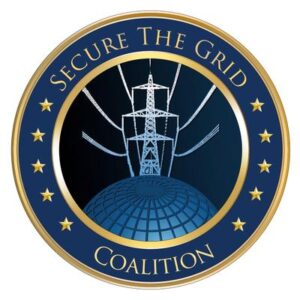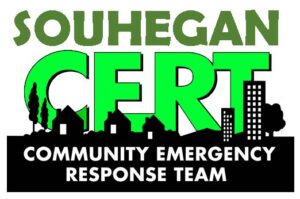Immediate Action Needed!!
Tell your Representative and Senators how to fix electric grid security.
You have to ask your elected officials to introduce and push for this legislation to fix electric grid security. Contact their office and try to set up a meeting or send them a letter.
- To find your U.S. Representative, go to the U.S. House of Representatives’ website by clicking here and enter in your zip code.
- To find your U.S. Senators, click here and click the map for your state.
Tell them that protection of the electric grid needs to be mandatory, and you know a way that this can be done. Give them copies of these two documents:
- Click HERE for a PDF copy of the Grid Security Act.
- Click HERE for a copy of the Electric Grid Whistleblower Protections.
We know how to fix electric grid security, but it will take citizens holding their elected officials accountable to get this done.

Meet with your Representative and Senators and hand them this letter:
Ask your elected officials to introduce or support legislation mandating that entities in the electric grid take reasonably prudent actions to protect their portion of the grid from cybersecurity threats, physical security threats, EMP/GMD threats and hardening for severe weather events.
If they won’t meet you or fail to take action? Remember that in the voting booth. We must hold our elected officials accountable to protect our families.
Contact your Representative and Senators and ask:
“Why are we importing critical equipment and systems from the People’s Republic of China and installing it on the U.S. electric grid which the Chinese are already hacking?”
Read this for background:
- Chinese Transformer Complaint Filed with U.S. Government
- FERC Notice of Complaint
- Federal Register Notice of Complaint
Feel free to print this complaint and send it to your Elected Officials!
- To find your U.S. Representative, go to the U.S. House of Representatives’ website by clicking here and enter in your zip code.
- To find your U.S. Senators, click here and click the map for your state.
Watch Mike and Greg discuss this situation and the threats to the electric grid. Share this video with your friends and family and tell them to Take Action!
Contact your State Public Utility Commission, State Utility Consumer Advocate and Elected Officials and ask:
“Why am I paying for electric utility industry lobbyists in my electric bill?”
Read these documents for background:
In fact, feel free to print this article up and send it to your Public Utility Commission, State Utility Consumer Advocate and Elected Officials!
- To find the contact information for your Public Utility Commission, CLICK HERE.
- To find the contact information for your State Utility Consumer Advocate, CLICK HERE.
- To find your U.S. Representative, go to the U.S. House of Representatives’ website by clicking here and enter in your zip code.
- To find your U.S. Senators, click here and click the map for your state.
Other Actions You Can Take
- Are you a good researcher? Are you willing to commit a few hours a week to helping me secure the grid? Contact me by email – I may have a mission for you. (None of us get paid – this is strictly “for the flag.”)
- Read this filing about the challenges to securing the electric grid and talk to your Representative and Senators. Call and set up a meeting to sit down with their staff members, give them a copy and express your concerns!
- Get Thomas Popik Nominated to FERC!
- Get THIS ARTICLE to your state Public Utilities Commission and your State Utility Consumer Advocate and urge them to write to demand that FERC release the names of companies that violate mandatory standards to the public. Find your State Public Utilities Commission HERE. Find your State Utility Consumer Advocate HERE. (For an example letter, click HERE.)
- Write to your Congressional Representative and tell them to join the Congressional EMP Caucus!
- Print out THIS REPORT and send to it your elected officials
- Bring this letter to your local emergency manager and get involved in preparing your community!
- Emergency Managers: The NDAA for FY 2020 contains a key provision for the National Guard: Section 1720. Get with your National Guard contacts and work the issue of emergency preparedness for a long-term power outage!
Take Action to Secure the Grid

The Secure the Grid Coalition believes that a two-pronged approach is necessary to protect the United States from a catastrophic long-term power outage.
First, the federal government must fix the failed current regulatory scheme which has proven unable to protect the self-regulated electric grid. The Federal Energy Regulatory Commission (FERC) either does not have the power – or the will – to force the industry to protect the grid and intervention is required. Congress can fix the regulatory scheme through legislation. The President has issued Executive Order 13865 which implements some of the recommendations of the Congressional EMP Commission. (See the Chairman’s Report of the Congressional EMP Commission for more details.) Also, the NDAA for FY2020 codifies some of these provisions. But it is going to take a lot of work to make sure the federal agencies fulfill their obligations and the order still does not fix the failed regulatory system – only Congress can do that.
Second, we need to prepare our communities for catastrophic disasters by building a culture of preparedness in the United States. We need Congress to reintroduce and pass the bipartisan H.Res 762 from the 112th Congress (“Expressing the sense of the House of Representatives regarding community-based civil defense and power generation”). This resolution would send a message to the 35,000 towns and cities across the United States that we need to build a culture of preparedness. This resolution:
- encourages every community to develop its own “civil defense program” working with citizens, leaders, and institutions, ranging from local fire halls, schools, and faith-based organizations, to create sustainable local infrastructure and planning capacity, so that it might mitigate high-impact scenarios and be better prepared to survive and recover from these worst-case disaster scenarios and be better able to affordably and sustainably meet the needs of the community in times of peace and tranquility;
- encourages every citizen to develop an individual emergency plan to prepare for the absence of government assistance for extended periods;
- encourages each local community to foster the capability of providing at least 20 percent of its own critical needs, such as local power generation, food, and water, while protecting local infrastructure whenever possible from the threats that threaten centralized infrastructure; and to do so with the urgency and importance inherent in an all-of-nation civil defense program developed by citizens and their local communities; and
- encourages state governments and federal agencies to support the ability of local communities to become stronger, self-reliant, and better able to assist neighboring communities in times of great need.
If we as a nation can do these two things, we will be stronger, more prepared and more resilient. But do not wait for the government to act. Work to prepare your community NOW!
What You Can Do to Secure the Grid:
Write to your representative and ask that they:
- Join the bipartisan Congressional Electromagnetic Pulse Caucus and sponsor and/or support legislation to harden the electric grid against known threats such as electromagnetic pulse (EMP), geomagnetic disturbance (GMD) or “space weather”, cyberattack, physical attack and extreme weather.
- Reintroduce and support the bipartisan H.Res 762 from the 112th Congress (“Expressing the sense of the House of Representatives regarding community-based civil defense and power generation”).
Is your representative a member of the Electromagnetic Pulse Caucus? If you don’t know, you should ask them to join as I have (click here for my letter to Congresswoman Ann Kuster).
If you don’t know who your representative is, go to the U.S. House of Representatives’ website by clicking here and enter in your zip code.
You can also write, call or email the staff of the two Co-Chairs of the Electromagnetic Pulse Caucus:
Co-Chair: Rep. Doug Lamborn
2402 Rayburn House Office Building
Washington, DC 20515
Staff Contacts:
Andrew Braun: [email protected]
Sam Fletcher: [email protected]
Co-Chair: Rep. Yvette D. Clarke
2058 Rayburn House Office Building
Washington, DC 20515
Staff Contact:
Charlyn Stanberry: [email protected]
What You Can Do to Secure Your Community:
 Your community needs a plan for a long-term power outage. Nationally, there is no plan. Here is what we recommend:
Your community needs a plan for a long-term power outage. Nationally, there is no plan. Here is what we recommend:
- Meet with your local emergency manager, mayor or town officials. Ask: “What is our plan for a long-term power outage where no outside assistance is available?” If they don’t have an answer, show them this article to start.
- If your community has a Community Emergency Response Team (CERT), consider joining or supporting them.
- If your community does not, have a CERT team, ask your local emergency manager to support starting one.
Remember, in a long-term, national-scale power outage,
survival will be a local issue.
[wpedon id=”5868″ align=”center”]
